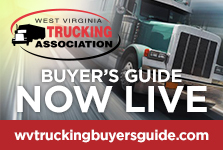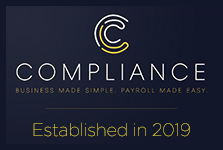Please click on this link to access information, provided by DOT's Office of Drug and Alcohol Policy Compliance (ODAPC), about the impact of the COVID-19 national emergency on DOT drug and alcohol testing requirements for employers, employees, and service agents. The Federal Motor Carrier Safety Administration (FMCSA) regulations provide reasonable flexibility to motor carrier employers and their drivers subject to testing under 49 CFR part 382 to address the COVID-19 national emergency. FMCSA is aware that, as described in ODAPC's guidance, disruptions caused by the COVID-19 national emergency are interfering with, and in some cases, may be preventing, employer and driver compliance with current drug and alcohol testing requirements. In addition to the guidance provided by ODAPC, see below for further information specifically related to FMCSA's testing requirements.
Recommended actions for FMCSA-regulated employers unable to conduct:
- Random Testing - You are required by 49 CFR 382.305(k) to ensure that the dates for administering random alcohol and controlled substances tests are spread reasonably throughout the calendar year. DOT guidance further recommends that you perform random selections and tests at least quarterly.
For further guidance Click Here
If, due to disruptions caused by the COVID-19 national emergency, you are unable to perform random selections and tests sufficient to meet the random testing rate for a given testing period in order to achieve the required 50% rate for drug testing, and 10% for alcohol testing, you should make up the tests by the end of the year. You should document in writing the specific reasons why you were unable to conduct tests on drivers randomly selected, and any actions taken to locate an alternative collection site or other testing resources.
*Pre-Employment Testing - If you are unable to conduct a pre-employment controlled substances test, in accordance with 49 CFR 382.301(a), you cannot allow a prospective employee to perform DOT safety sensitive functions until you receive a negative pre-employment test result, unless the exception in 49 CFR 382.301(b) applies.
*Post-Accident Testing - You are required to test each driver for alcohol and controlled substances as soon as practicable following an accident as required by 49 CFR 382.303. However, if you are unable to administer an alcohol test within 8 hours following the accident, or a controlled substance test within 32 hours following the accident, due to disruptions caused by the COVID-19 national emergency, you must
document in writing the specific reasons why the test could not be conducted, as currently required. See 49 CFR 382.303(d) and FMCSA Guidance by clicking here.
*Reasonable Suspicion Testing - You should document in writing the specific reasons why the test could not be conducted as required; include any efforts you made to mitigate the effect of the disruption, such as trying to locate an alternative collection site. This documentation should be provided in addition to the documentation of the observations leading to a test, as required by 49 CFR 382.307(f). Follow current regulations addressing situations in which reasonable suspicion testing is not conducted, set forth in 49 CFR 382.307(e)(1), (2).
*Return-to-Duty (RTD) Testing - In accordance with 49 CFR 40.305(a), you must not allow the driver to perform any safety-sensitive functions, as defined in 49 CFR 382.107, until the RTD test is conducted and there is a negative result.
*Follow-up Testing - If testing cannot be completed, you should document in writing the specific reasons why the testing could not be conducted as in accordance with the follow-up testing plan; you should include any efforts you made to mitigate the effect of the disruption, such as trying to locate an alternative collection site. You should conduct the test as soon as practicable.
FMCSA-Regulated Employees:
Please follow the ODAPC guidance, as set forth below, and available by clicking here.
- If you are experiencing COVID-19-related symptoms, you should contact your medical provider and, if necessary, let your employer know about your availability to perform work.
- If you have COVID-19-related concerns about testing, you should discuss them with your employer. FMCSA joins ODAPC in suggesting that employers respond to employee concerns in a sensitive and respectful way.
- As a reminder, it is the employer's responsibility to evaluate the circumstances of what may be considered an employee's refusal to test and determine whether or not the employee's actions should be considered a refusal as per 49 CFR § 40.355(i).
This guidance document does not have the force and effect of law and is not meant to bind the public in anyway. This guidance is intended only to provide clarity regarding existing requirements under the law.
CISA Guidance Template Letter for Company Drivers
A few have requested a template (and a few STAs have already prepped their own) of a letter/notice for drivers to carry in their cabs that spells out “Truck Drivers have been designated as essential critical infrastructure workers by the Department of Homeland Security’s Cybersecurity and Infrastructure Security Agency”.
Be advised, the use of this or any other similar type letter is NOT required anywhere, but it may come in handy for a driver especially when dealing with law enforcement personnel not overly familiar with industry practices and trying to enforce something like a local “shelter-in-place” declaration. Again, this is not required by any jurisdiction and it is not a “Get of jail free” type card either. Click here to for access the template.
New Research Designed to Quantify Trucking Impacts from COVID-19 | Industry Survey Seeks Operating Impacts from Drivers, Fleets
The American Transportation Research Institute (ATRI) and the Owner-Operator Independent Driver Association Foundation (OOIDA Foundation) are conducting a joint research study to understand the numerous impacts that the Coronavirus pandemic is having on trucking operations. The research focuses heavily on a survey that solicits critical input from truck drivers and motor carrier staff who are encountering Covid-19 impacts such as limited shipper access, changing distribution patterns and traffic-related issues.“This survey will help us confirm what we know anecdotally,” said Tom Weakley, Director of the OOIDA Foundation, “that the trucking industry is leading the charge in responding to food and medicine shortages among other critical supplies. We need everyone’s input on this effort.”The survey link can be found at: https://www.surveymonkey.com/r/ATRI-Coronavirus-Perspectives.Anyone involved in trucking operations is urged to respond.“Our goal is to complete the data analysis as quickly as possible, as it can provide important guidance to public and private decision-makers. The Covid-19 pandemic is a moving target, and we can’t afford to design policies and supply chains around guesswork,” said Dan Murray, Senior Vice President at ATRI.ATRI is the trucking industry’s 501c3 not-for-profit research organization. It is engaged in critical research relating to freight transportation’s essential role in maintaining a safe, secure and efficient transportation system.






